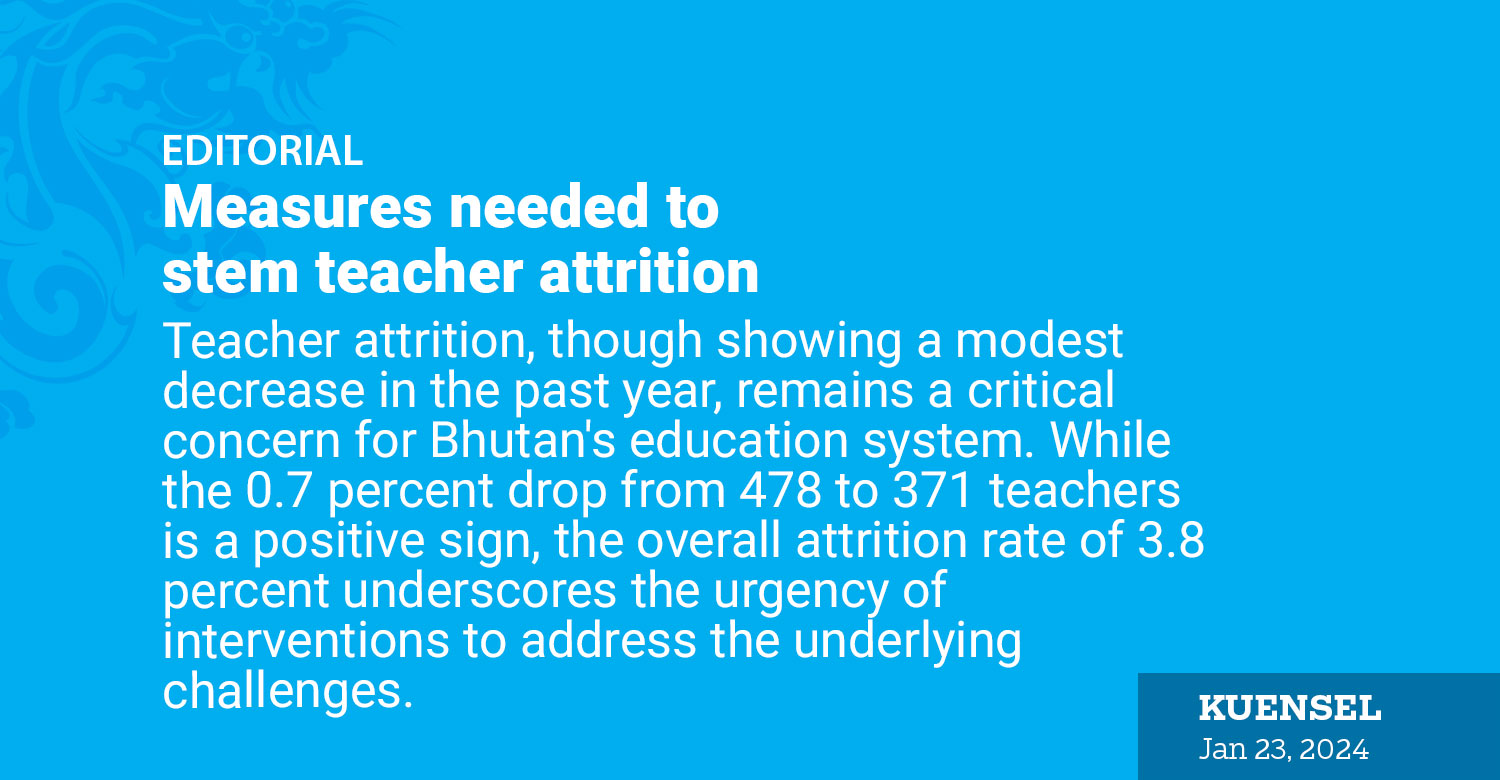Teacher attrition, though showing a modest decrease in the past year, remains a critical concern for Bhutan’s education system. While the 0.7 percent drop from 478 to 371 teachers is a positive sign, the overall attrition rate of 3.8 percent underscores the urgency of interventions to address the underlying challenges.
In the absence of a specific study, attributing the decrease to factors such as pay hikes and improvements in the working environment is a reasonable assumption. However, a more in-depth analysis is essential to craft effective solutions.
The reasons behind teacher attrition are multifaceted, encompassing personal, professional, and systemic factors. Voluntary resignations, superannuation, and contract expirations contribute to the attrition rate, emphasising the need for urgent interventions to establish a more stable teaching workforce.
While pay hikes are a positive step, their impact may be limited if they do not align with the rising cost of living or if teachers perceive discrepancies in their compensation compared to the demands of their role. Urgent attention is required to ensure that teachers are not only fairly compensated but also feel valued for their contributions.
Beyond salary considerations, a holistic approach to benefits is crucial. This includes health and wellness programmes, professional development opportunities, and incentives for exceptional performance. Creating a comprehensive package that acknowledges the diverse needs of teachers is vital for fostering job satisfaction and retention.
Improvements in the overall working environment in Bhutanese schools are commendable but require continuous attention. Adequate infrastructure, classroom resources, and a supportive administrative framework significantly contribute to the well-being of teachers. Interventions should focus on identifying gaps and addressing them swiftly.
Teachers, like any other professional, thrive when provided with opportunities for career advancement and continuous learning. Establishing clear pathways for professional growth and recognising achievements can contribute to a sense of purpose and commitment among educators.
Ensuring job security is a key factor in retaining teachers. Contract expirations can create uncertainty, leading to attrition. Interventions should explore measures to provide greater job stability, especially for qualified and experienced educators.
While attributing the decrease in attrition to specific factors is insightful, a systematic study is urgently needed. This study should delve into the root causes, considering the perspectives of teachers, administrators, and education experts. The findings will form the basis for targeted and evidence-based interventions.
Creating a collaborative platform involving education officials, teachers, and relevant stakeholders is crucial. There is, thus, the need to facilitate open dialogue to identify challenges and co-create solutions. Engaging the teaching community in decision-making processes enhances a sense of ownership and commitment.
More importantly, a sustained commitment to investing in education is paramount. This includes allocating resources for infrastructure, professional development, and teacher support programmes. Education, as a foundational pillar for national development, should receive the top priority.


